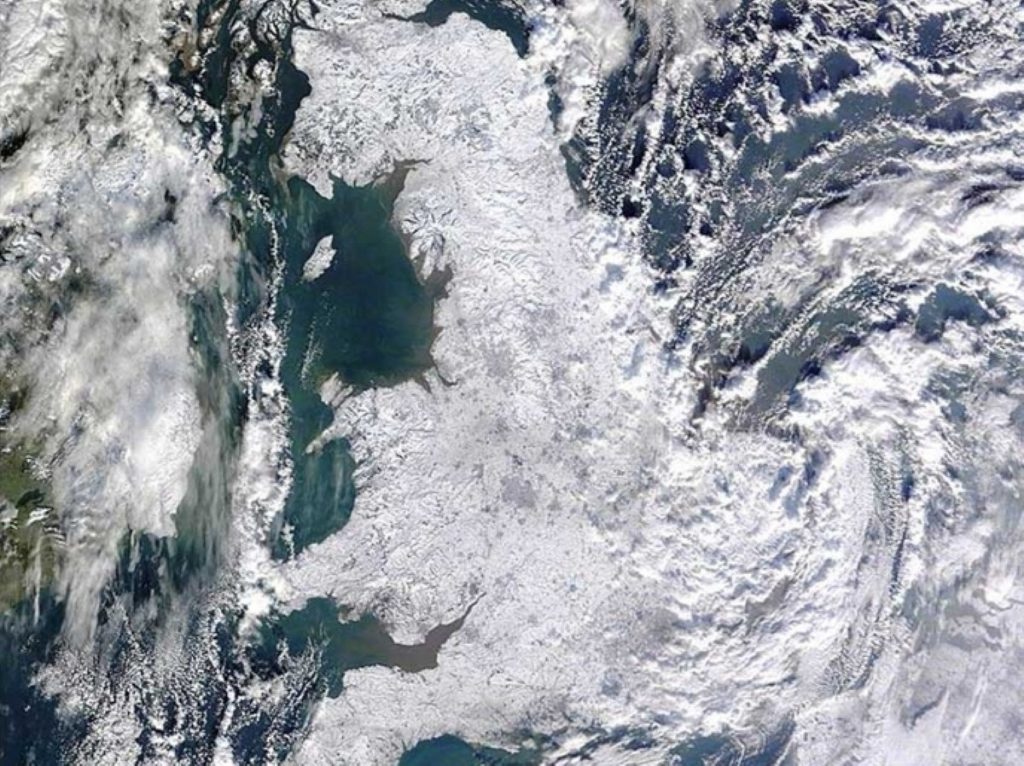Double-dip danger for snow-hit economy
The British economy took a step backwards in the final quarter of 2010, contracting by 0.5%.
The Office for National Statistics (ONS) said bad weather and a difficult period in the construction industry were primarily responsible for the setback.
But the news will spark political fears of a double-dip recession – which would take place if the first three months of 2010 see a second consecutive quarter of negative growth.


“It’s the worst December for 100 years, people remember that, but we shouldn’t be blown off course by bad weather and we’re not going to be,” chancellor George Osborne said.
But his new shadow, Ed Balls, said claims that the Conservative-led government’s claims to have saved the economy “will ring very hollow indeed”.
He said the figure showed the “first signs” of the coalition’s impact on the economy, adding: “The fact is cuts which go too far and too fast will damage our economy… George Osborne and the Treasury must urgently re-think their reckless plan to cut the deficit too far and too fast and start putting growth and jobs first.”
Mr Osborne rejected the suggestion that the coalition’s austerity drive was behind the setback, however.
“The tax rises and the spending review process had not kicked in yet. That’s not an excuse that people can make,” he added.
“We’re very clear that to abandon the budget plans would put us back into the financial crisis zone which is where the Labour party left us. We’re not going to do that.”
Sterling fell dramatically following the news. Expectations for growth had stood at between 0.2% and 0.7%, making the final figure much worse than had been anticipated.
The figures promopted Gordon Brown to return to the fray, with an interview on CNBC.
“To be honest, if we have only deficit reduction, then that’s the policy of the 1930s,” he said.
“The question for Britain, for Europe, for America is whether you are prepared for the next challenge. Simple blanket cuts without any thought for tomorrow, and without any recognition that they’ve got to be staged in a way that you don’t imperil growth, is I think the policies of the ’30s and that’s just not going to work.”
The figure for October to December 2010 followed GDP growth of 1.1% in the second quarter and 0.7% in the third quarter.
The ONS said the 0.5% contraction was less certain than usual because much of the negative impact came in the final month of the quarter, December, when heavy snowfall disrupted retail sales in the crucial Christmas period.
As a result statisticians urged that broadly flat growth would be a more accurate interpretation of the figures.
“The coldest December for a century affected many businesses, especially in construction, and accounted for much of the decline,” Markit chief economist Chris Williamson commented.
“The underlying picture was therefore probably one of stagnation or very modest growth.”
Economists are already looking ahead to the first quarter of 2011 to assess whether a double-dip is possible.
Mr Williamson said information for January suggested consumers are acting “as an increasing drag on economic growth”, because of the rise in VAT to 20% and other factors influencing household finances.
He added: “Strong demand from overseas markets such as Germany, China and the Middle East raises our hopes that UK exporters will have continued to help offset domestic weakness and revive the recovery, but the chances of a double-dip recession have surely increased.”
The news followed outspoken comments by exiting CBI director-general Sir Richard Lambert yesterday criticising the government’s lack of ambition when it came to fostering growth.












